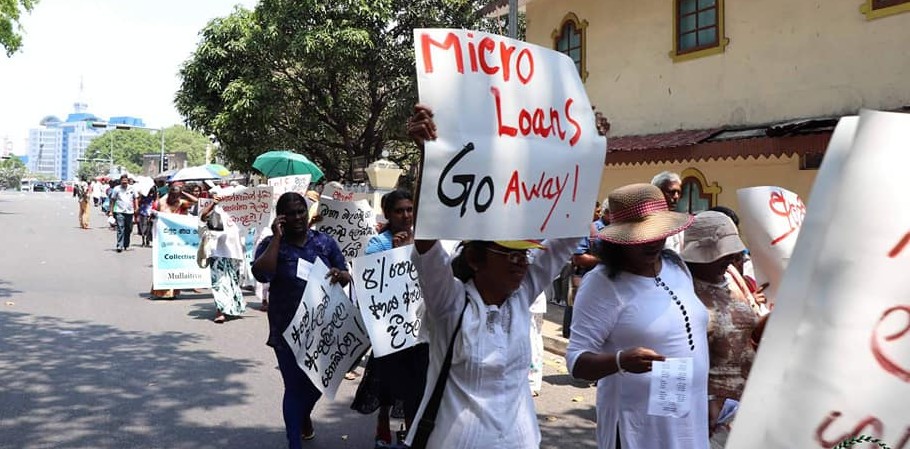Movement for Land and Agricultural Reform (MONLAR) held a demonstration last week demanding that the government fulfil President Gotabaya Rajapaksa’s election pledge to scrap micro-credit loans.
“About 200 people had committed suicide, during the last three years or so, as they were unable to pay back the micro-credit loans and many of those organisations had obtained the services of village thugs to recover money”
Chinthaka Rajapakshe, Convener of the Movement for Land and Agricultural Reform (MONLAR)
“In October 2019, then-presidential candidate Rajapaksa promised to scrap the micro-credit loans, which are causing serious problems to people. However, after 100 days of ruling the country, the government is silent on the matter,” Chinthaka added.
In 2018, United Nations Independent Expert, Juan Pablo Bohoslavsky, visited the country and found that an overwhelming number of individuals who had obtained micro-credit loans were women.
Chinthaka said, “Bohoslavsky reported that women were pressured by collectors to exchange ‘sexual favours’ for instalments and that there are cases of borrowers who tried to sell their kidneys to repay the loans. Some leave their villages, suffer domestic violence as a punishment for the breach of contract or have to work much harder and longer to earn sufficient money to repay the debts. Some of them have committed suicide.”
Bohoslavsky’s report also says that while the universe of borrowers is broad, women from more impoverished and war-affected areas are specially targeted by micro-finance financial institutions, which charge their loans with up to 220 per cent interest rate and apply compound interest.
This article first appeared on The Island

